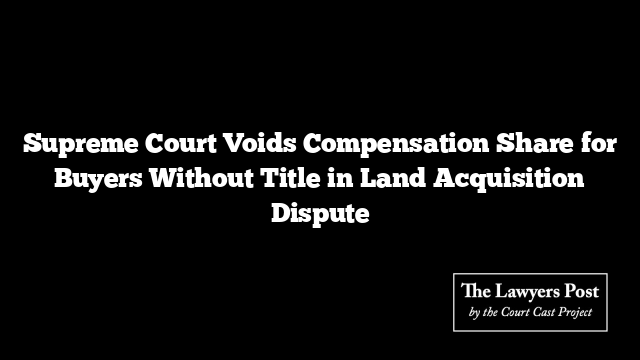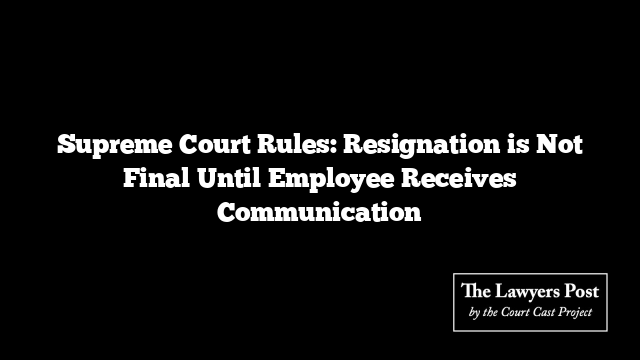The Supreme Court has overturned a Karnataka High Court ruling that had granted 30% of the compensation for land acquired for a Metro Rail Project to ten private individuals. These individuals had purchased plots from a cooperative society that was later found to have no legitimate claim to the land. The plaintiff, declared the rightful owner, contested the compensation allocation, arguing that the buyers had no entitlement to it, given their risky and disputed land purchases.
The land at the center of this dispute, located in Bangalore’s Kempapura Agrahara Inam Village, was originally owned by BC Subbalakshmamma, who gained occupancy rights in 1969. The plaintiff acquired the land through a sale deed in 1975, but faced challenges from the REMCO Industrial Workers House Building Cooperative Society Ltd., which laid claim to portions of the property. Despite the society’s claims being dismissed in court, they continued to hold possession of part of the land, leading the plaintiff to file a civil suit for ownership and possession.
The trial court ruled in the plaintiff’s favor, affirming ownership over 1 acre and 3 guntas of land but rejecting possession due to discrepancies in the sale deed. Following appeals, the case returned to the trial court, which again ruled in favor of the plaintiff in 2008. The Karnataka High Court upheld this decision but allowed an appeal by Defendant No. 20, whose plot was found to be unrelated to the disputed land. However, the HC’s ruling that ten individuals were entitled to 30% of the compensation for land acquired by the Metro Rail Project was challenged in the Supreme Court.
The Supreme Court, in reviewing the case, found that none of the ten individuals had made claims for compensation, nor had they challenged the original HC judgment affirming the plaintiff’s ownership. The Court concluded that awarding compensation to these individuals was unsupportable, given the absence of any legal claim or entitlement. The rightful owner, the Court ruled, was entitled to the full compensation for the land acquired for the Metro project, voiding the HC’s earlier decision.
This ruling solidifies the plaintiff’s right to the entire compensation for the acquired land, marking the resolution of a decades-long dispute over the contested property.





